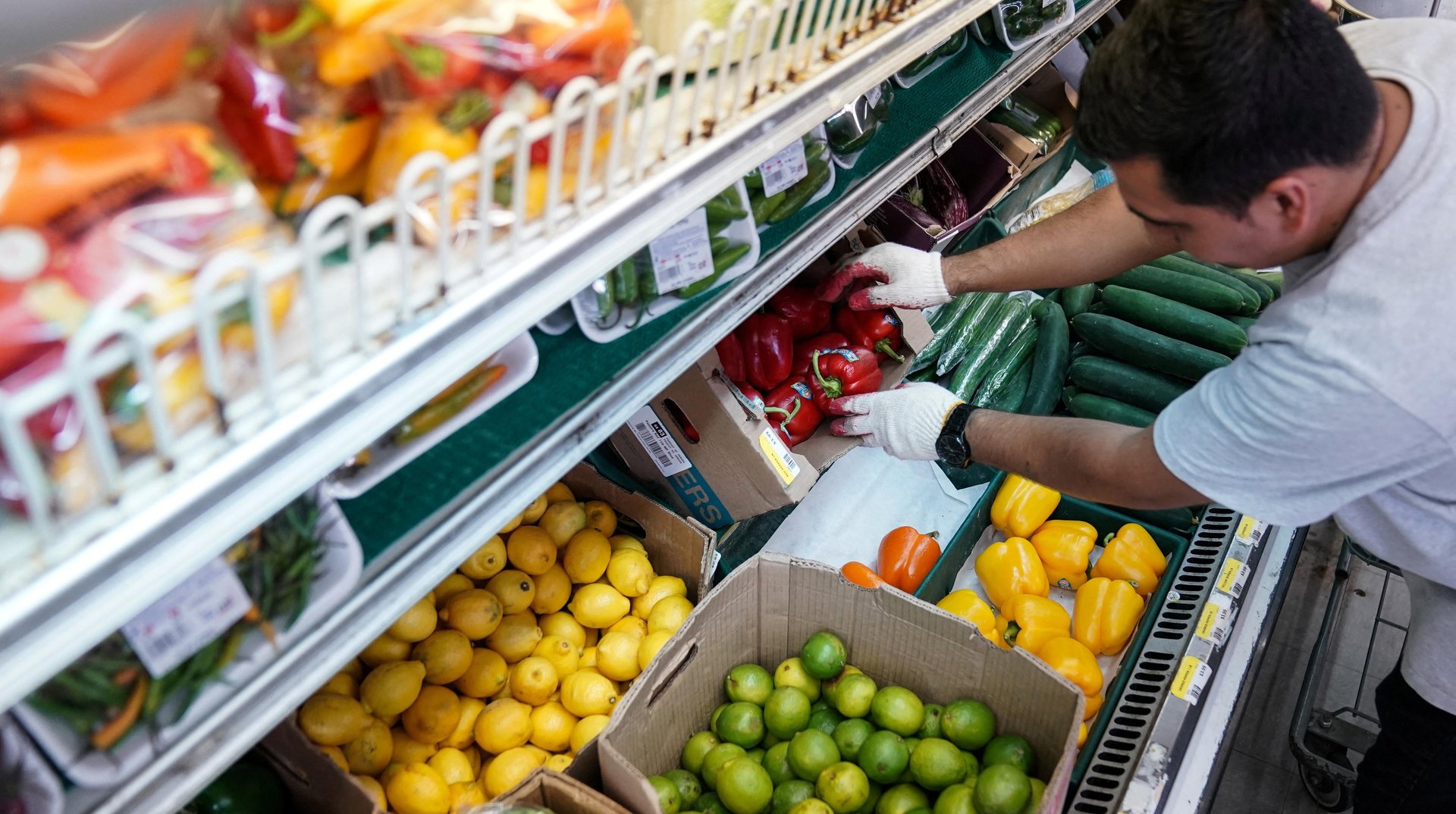Supply chain problems are getting worse, not better, for US food retailers
Food retailers are still struggling with increased consumer demand

Food retailers are still struggling with their supply chains.
A recent survey from the Food Industry Association (FMI), a trade organization that represents food retailers and wholesalers, found that 70% of retailers said supply chain disruptions are negatively impacting their business, up from 42% the year before. The survey was conducted in the second quarter of 2022 and polled food retailers and wholesale companies representing over 38,000 stores.
What’s causing supply chain disruptions for food retailers?
Increases in consumer demand, labor shortages, and trucking and shipping capacity restraints continue to interrupt supply chains, retailers told FMI. These problems have persisted throughout the pandemic, as seen with the shortages ranging from french fries to cream cheese.
To help understand how impactful an increase in consumer demand can be on supply chains, consider the bullwhip effect. Small changes in consumer demand can trigger larger changes in retailers’ orders from manufacturers, and bigger swings in demand for the materials needed to manufacture goods. The disruptions widen as they move up the chain, as more error gets introduced, leading first to surplus, and then to shortages when manufacturers then overcorrect and reduce supply. Fresh food supply chains have an added layer of complication because there can’t be extra supply or back stock due to risk of spoilage.
The shortage of workers also slows down the production process. Labor shortages continue to be a problem for the food industry as a whole, as workers seek better paying or less arduous jobs.
In response, food retailers are using AI and robotics to help make logistical and inventory management more efficient, according to FMI.
The changing supply chain
Retailers will also likely start looking to shorten their supply chains by partnering with more local suppliers for the products they need, Mark Baum, senior vice president of industry relations at FMI, wrote in an email. That would help reduce costs on transportation and storage, as well as better strengthen supply chains against major disruptions like weather and war. Food shortages at traditional retailers pushed consumers to turn more to local farms, particularly, when they were cooking more at home during pandemic-related lockdowns in the US.
Walmart last week said it bought a minority stake in Sustainable Beef, a rancher-owned company, to source angus beef from the supplier, which will lead to a more consistent supply of beef for the retailer.
